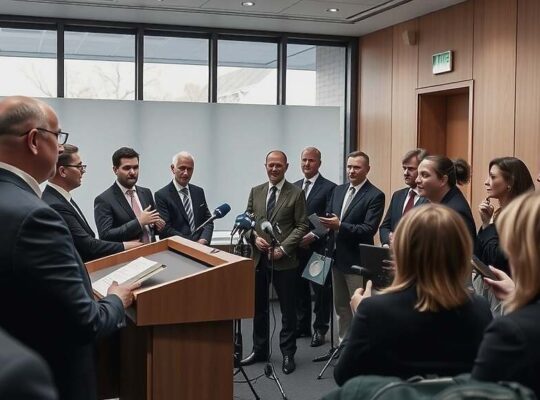The incoming period of maternity leave for Minister for Construction, Verena Hubertz, has sparked a nuanced debate about parliamentary norms, generational progress and the persistent challenges faced by women in German politics. While acknowledging the symbolic weight of Green MP Hanna Steinmüller’s recent decision to deliver a parliamentary speech while carrying her baby – a moment Hubertz termed “historic” – the SPD minister has stated her intention not to follow suit.
Hubertz, who is expecting her first child in January and will enter maternity leave in December, explained her reasoning, emphasizing the uncertainty surrounding childcare needs and the unpredictable demands of early parenthood. While committed to including her child in both parliamentary and ministerial settings, she prefers to navigate those situations with a degree of flexibility, rather than attempting a public debut with a baby during a formal session.
Her position arrives within a context of ongoing scrutiny. Hubertz is only the third German minister to become a mother while in office, a statistic underscoring the relative scarcity of women holding high-ranking political positions. Previous instances, notably Kristina Schröder (CDU) and Manuela Schwesig (SPD), both former Family Ministers, generated considerable media attention, demonstrating both public curiosity and underlying societal expectations surrounding female politicians and motherhood. Schröder’s decision to bring her baby to the ministry in 2011 remains a landmark moment often referenced in discussions about work-life balance for women in power.
Beyond the immediate logistical considerations, Hubertz’s experience highlights a troubling undercurrent of misogyny that persists within German online discourse. Following the public announcement of her pregnancy, she has endured a barrage of hostile comments in online spaces. Rather than pursuing legal action against these attacks – which, while venomous, fell short of direct threats – Hubertz has adopted a strategy of resilience, advocating for a broader cultural shift that renders such aggression unacceptable. “I don’t want to be discouraged by it” she stated. “We need to counter it, so we aren’t still having this discussion in ten years. I thought we’d be further along in 2025.
The incident serves as a stark reminder of the continued need for a more equitable and respectful societal attitude towards women in leadership roles and challenges the notion of effortless integration of family and career that is often implicitly demanded of female politicians.












